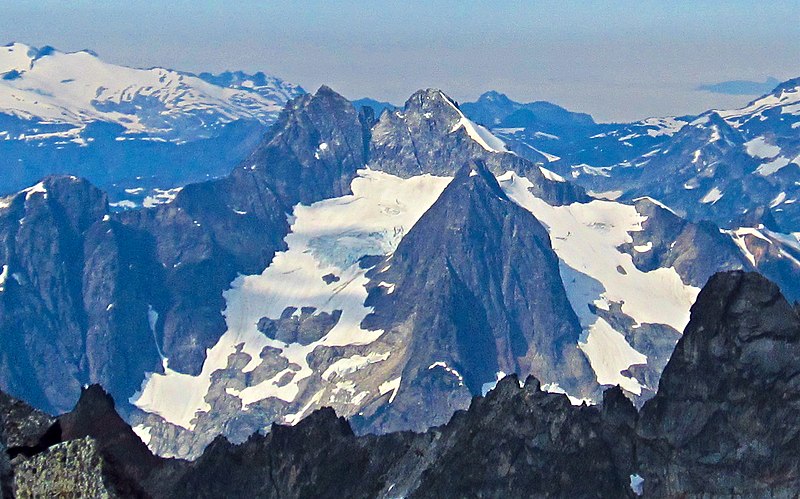Daily Office Readings for June 19, 2020:
AM Psalm 88; PM Psalm 91, 92
Num. 13:1-3,21-30; Rom. 2:25-3:8; Matt. 18:21-35
Psalm 88 is the Mount Despair of the Psalter.
Additionally, Psalm 88 is unique in the Psalter in that it does not follow the usual formula where some sort of glorification of God appears at the end of the psalm. Its ending is pretty depressing–”My friend and my neighbor you have put away from me, and darkness is my only companion.” The psalmist is sitting alone in the dark, after filling God’s ears with a litany of despair.
The Revised Common Lectionary totally avoids Psalm 88. If we choose to be a “Sunday Only” Christian, we can avoid Psalm 88 entirely. If we are someone who freewheels their way through the Bible, we can skip it and turn the page. Yet for those of us who use the Daily Office, we will encounter it multiple times in a year.
In case you’ve never heard of Mt. Despair, it’s a mountain in the Washington Cascades. There’s not exactly a big list of people waiting to climb it. One source I found stated that since 2000, only about one party a year signs up with the National Park Service to climb it, and no one felt up to the task in 2005. Evidently part of the problem is it has an extremely steep face, and finding one’s way is complicated by the frequent storms in the area.
Of course, the problem with our personal Mr. Despair is we generally don’t choose to climb it, like making the decision to climb a mountain. We are generally teleported there in the blink of an eye, suddenly finding ourselves clinging to the edge of the steep face, possibly with not even enough equipment to feel safe enough to move an inch one way or the other. The storms are pounding us, the fog envelopes us, and no matter how faithful we are, God always feels decidedly, conspicuously…absent.
It’s easy to toss this psalm aside; it’s easy to simply say, “I’m not signing up to climb this one.” I’ll be honest, I’ve had times in my daily trek through the Psalms I DID toss it aside. I simply wasn’t up to saying the words, and often it’s been at times I was having my own version of Mt. Despair. Yet I admit, every time I made the decision and strapped on my spiritual climbing gear, I learned something. I might not always have liked it, I might not even have liked what I learned, but I did learn something.
It takes several times through this psalm to see its landscape enough to recognize there actually IS hope in it. The trick is being able to divorce ourselves from the formulaic way we are used to hearing the Psalms, with that expectation of feeling good about God at the end. The hope is actually at the beginning, not the end: “O Lord, my God, my Savior, by day and night I cry to you. Let my prayer enter into your presence; incline your ear to my lamentation.”
The hope is that the Psalmist is actually speaking to God like we’d speak to a real person. The Psalmist has not given up on the conversation. The expectation is that someone IS listening. It’s the same hope we place when we are struggling with death, whether it’s ours or someone else’s. We don’t live in the surety of the resurrection; we live in the hope of the resurrection, even though our life experience generally hasn’t included eyewitnessing a real live bodily resurrection. We don’t pray with the expectation of an answer; we pray with the hope of an answer. Some of the things we’ve prayed for didn’t happen the way we wanted; some of the things we pray for, we resign ourselves to the fact we won’t see them happen in our lifetime. Yet we continue to pray…why is that? It’s because we still believe someone is listening, and somehow that belief changes us, that somehow that belief of a divine Listener gets us a tiny bit closer to the source of all love when our present environment seems devoid of love.
Psalm 88 also reminds us that even if it’s not our turn to be clinging to the face of Mt. Despair, someone out there is, and we might be called to be the one sliver of light that makes a difference in someone else’s darkness. It might throw a rope to us to allow us to climb a few more inches towards someone, so they do not have to be plastered to the cliff face alone. There are actually many places it can take us if we simply remain in the conversation…we just won’t have any idea where those places are or what they look like.
Where have you found cracks in the wall of your own Mt. Despair, that at least allow you to place a hand or foot and hold on a little longer?
Photo: Mount Despair, in the Washington Cascades, courtesy of Wikimedia Commons.
Maria Evans splits her week between being a pathologist and laboratory director in Kirksville, MO, and gratefully serving in the Episcopal Diocese of Missouri , as the Interim Pastor at Christ Episcopal Church, Rolla, MO.

